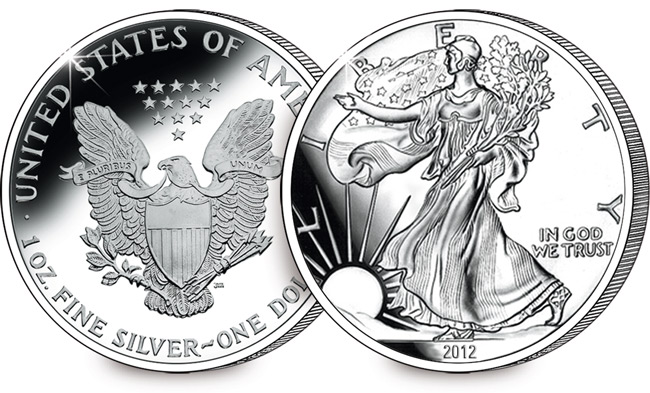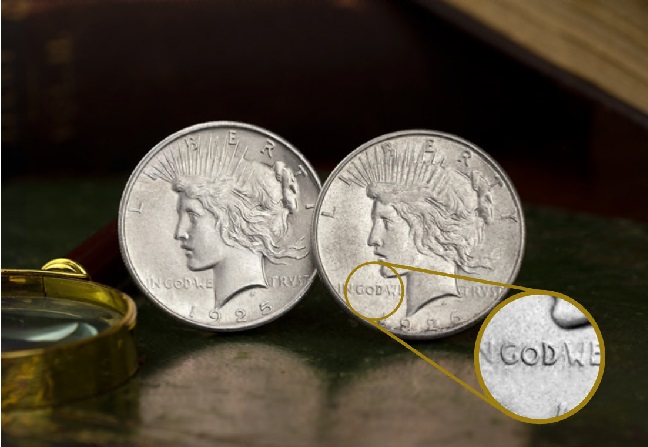“In God We Trust” is the official motto of the United States. It first appeared on an American coin in 1864 and President Dwight Eisenhower approved a law in 1955 that required “In God We Trust” to appear on all American currency.

But some groups in the US are objecting to its use, suggesting it contravenes a clause in the First Amendment, leading to numerous lawsuits.
What’s the history of the motto, why is it so contentious and could we even see “In God We Trust” disappear from US coins in the not-too-distant future?
The History of “In God We Trust”
The motto was placed on US coins mostly because of the increased religious sentiment existing during the Civil War.
Many appeals were made to the Secretary of the Treasury to recognise the Almighty on American coins. One such letter from 1861 stored in the Treasury Department records states:
What I propose is that instead of the goddess of liberty we shall have next inside the 13 stars a ring inscribed with the words PERPETUAL UNION; within the ring the allseeing eye, crowned with a halo; beneath this eye the American flag, bearing in its field stars equal to the number of the States united; in the folds of the bars the words GOD, LIBERTY, LAW.
This would make a beautiful coin, to which no possible citizen could object. This would relieve us from the ignominy of heathenism. This would place us openly under the Divine protection we have personally claimed.”
The letters worked. An instruction was passed on to James Pollock, Director of the Mint at Philadelphia, to prepare a motto.
He was told:
No nation can be strong except in the strength of God, or safe except in His defense. The trust of our people in God should be declared on our national coins.
You will cause a device to be prepared without unnecessary delay with a motto expressing in the fewest and tersest words possible this national recognition.
In December 1863, the Director of the Mint submitted designs for new one-cent coin, two-cent coin, and three-cent coin to the Secretary of the Treasury for approval.
They didn’t arrive at “IN GOD WE TRUST” straight away though. The Director of the Mint proposed either “OUR COUNTRY; OUR GOD” or “GOD, OUR TRUST”
Secretary of the Treasury, Salmon P. Chase suggested it should be changed so as to read: IN GOD WE TRUST.
A year later, the US had their first coin featuring the motto, with the release of the 1864 two-cent coin. Whilst its use was widespread across the rest of the 19th century and into the 20th century, it wasn’t until 1955 when Eisenhower made it law that “IN GOD WE TRUST” should appear on all US currency.
The future of “In God We Trust”
But is it still right for a country that has grown and evolved so much?
People point to the lack of inclusiveness, that people of all religions (or with no religion) should feel like they are a part of the United States without having to profess a trust in God.
Lawsuits have been attempted, but haven’t got far. The Supreme Court has discussed the motto in footnotes but has never directly ruled on its compliance with the Constitution
It wouldn’t be a surprise to see the motto dropped from the country currency in the coming years. Perhaps the unofficial motto of the United States will be adopted instead – “E Pluribus Unum” (out of many, one).
If you’re interested…
No piece about “IN GOD WE TRUST” can end without mention of the famous 1926 Peace Dollar. That’s the only coin that features the word “GOD” accentuated as part of the design.

It’s a coin that shouldn’t exist and only does because of the unauthorised actions of a pious US Mint employee.
You can make the US rarity yours alongside the regular 1925 Peace Dollar for comparison by clicking here.